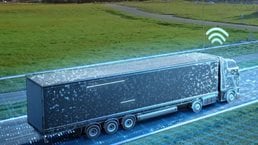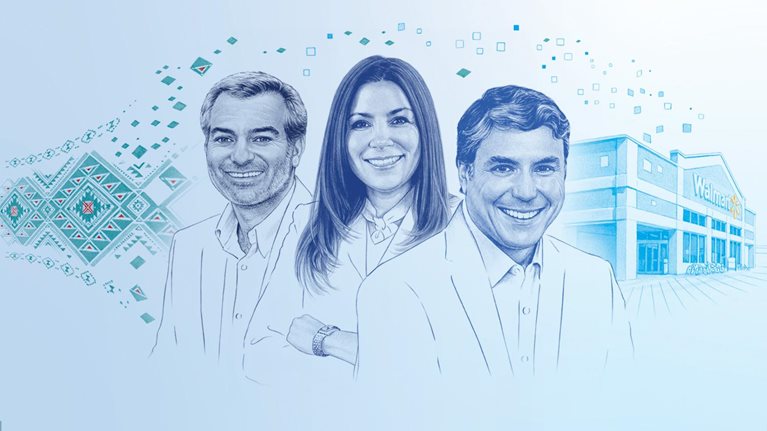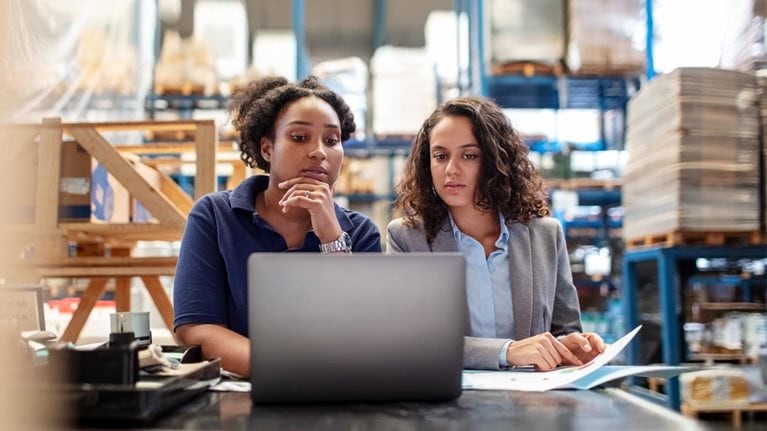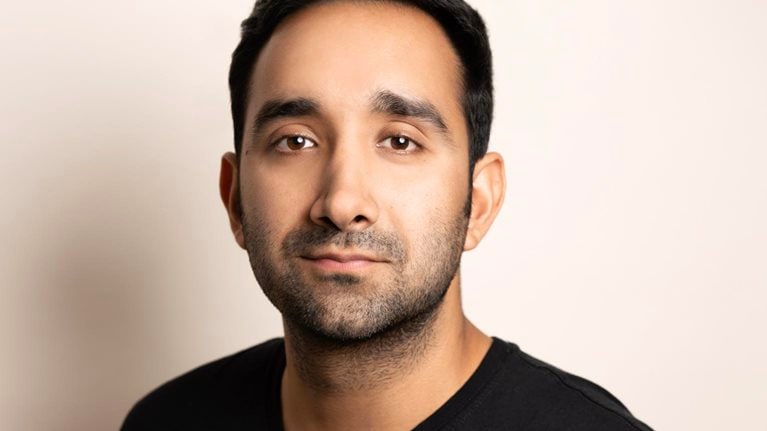Latin America was once considered an e-commerce laggard, full of consumers who were reluctant to buy online. No longer. The region now has one of the fastest-growing e-commerce sectors in the world.
The start-up Melonn (founded in Colombia in 2020 by six friends) aims to capitalize on Latin America’s booming cadre of small and medium-size B2C e-commerce companies. But one of the challenges Melonn faces is a deficit of trust: some Latin American shoppers have little faith that packages will arrive on time or at all; likewise, some local sellers worry about receiving payments, which are often not made until after delivery. Melonn hopes to assuage concerns by providing transparency, throughout the process, to both sides.
“Melonn comes from the Elvish word for friend, from the Lord of the Rings saga,” says cofounder Andrés Felipe Archila. “That’s how we see ourselves—as a friend, and as the most trustworthy ally, for e-commerce businesses in Latin America.” The company says it has raised $25 million in funding, has about 400 full-time employees, and services about 150,000 monthly orders.
In this installment of Logistics Disruptors, Archila spoke with McKinsey’s Maite Pena-Alcaraz about the utility of integrated software, the importance of getting small details right, and the imperative of fostering trust.
An edited version of that conversation follows.
McKinsey: What is Melonn’s business model?
Andrés Felipe Archila: We’re a 3PL [third-party logistics] partner for B2C e-commerce. That’s who we are. But doing that in Latin America is really, really hard. That’s what makes us unique.
There’s not the same level of trust in e-commerce in Latin America that you have in the United States or Europe. In Latin America, if you buy something through an e-commerce channel, the first things you’ll ask yourself are “Will it get here on time?” and “Will it get here at all?” A lot of transactions also involve payment upon delivery. Without some trust that the packages will get there, and the payments will be reliable, the system breaks down. I think trust is the main barrier to e-commerce in Latin America.
In terms of solutions, we offer a technology platform that is essentially a TMS [transportation management system], WMS [warehouse management system], and OMS [order management system] all in one. We store the inventory of our sellers in our warehouses. And when a customer buys online, we do the fulfillment—the picking, the packing, and the shipping. We make sure it gets there. And we make the process visible to all the players involved with tracking links and alerts.
McKinsey: How do you try to differentiate yourself?
Andrés Felipe Archila: Our goal is to make our sellers grow. And our sellers won’t grow if the delivery experience is awful. So our main value proposition is that we will meet the expectations of their customers. It sounds simple but it’s really hard in Latin America. We reduce customers’ anxiety levels through transparency, which increases trust in the whole ecosystem. When you have trusting customers, you have recurring customers, and it becomes a reinforcement cycle.
For our sellers, we also reduce barriers to access. We provide advice on how to spend their money on ads and how to design their checkout experiences. We provide them with more capacity and take problems off their plates. If you’re a brand working on clothing in the fashion industry, for example, and you have to spend your time answering complaints from customers and correcting addresses, you won’t be focused on what really makes your business grow.
I’m also obsessed with payments in Latin America. Because not everybody has a credit card or a debit card. Even if they do, if the trust is not there, they won’t put their banking information online. Working with a partner like Melonn helps put in place a middleman that everybody trusts.

Logistics Disruptors
McKinsey: What are the biggest challenges that you face?
Andrés Felipe Archila: Some of the obstacles are very clear. The on-time performance of the overall industry in Latin America is not great. The quality of delivery service is not great. But even if those things are solved, logistics isn’t the answer to every problem. There’s another set of problems that also hinders growth.
I have encountered websites where you need to create an account in order to buy something—but sometimes if you don’t have a one-click checkout experience, conversion rates will dramatically drop. Or if the quality of the images and information on a website is not clear, the customer conversion rate can drop to very low levels, and all the money you’ve spent on marketing is going to be wasted.
When I did the first 50 or so onboardings for Melonn, I used to browse the websites of the sellers, and I’d always need to say, “Please, please offer free shipping above a certain purchase amount. Otherwise, you’re going to lose a very big sale because you didn’t make shipping free.” That doesn’t have a lot to do with logistics. But these are things we’ve seen multiple times that we need to focus on. Those little details add up.
For us, the challenge is also in part deciding how much, and in which direction, we want to move. Do we want to move upmarket? And if so, how far up? Do we want to move into B2B e-commerce? If so, how much? Into ad marketing? Deciding what’s really needed to make e-commerce grow in Latin America is the challenge.
McKinsey: You decided to develop your own transportation management system, warehouse management system, and order management system. Why did you decide to do that versus going with off-the-shelf solutions?
Andrés Felipe Archila: In some cases, there were important operational capabilities that didn’t exist. For instance, I remember talking to transportation providers in Colombia and Mexico, asking, “Do you offer same-day capabilities? What’s the cutoff time?” And their answer was 8:00 a.m. That doesn’t work, because people buy at 9:00 a.m., 10:00 a.m., noon. That’s partly what made us decide that we needed to develop our own solution.
But another thing we realized early on is that to make e-commerce work, there needs to be superb integration of systems. If we had a WMS that was isolated from sales channels, there could be miscommunications about inventory, and the order might not be fulfilled. If it’s not connected to the transportation providers, we’d lose precious time making deliveries and we couldn’t deliver same day. So we created our own integrated technology.
McKinsey: We’ve seen a lot of changes in the logistics industry since the pandemic began. Which changes do you think are here to stay?
Andrés Felipe Archila: Before the pandemic, if you bought online in Latin America, you were almost an outsider. Nowadays, I think it’s impossible to launch a brand without an online sales channel—it would be crazy to ignore. So e-commerce in Latin America is here to stay.
People have gotten used to buying and selling online. At the same time, their expectations have gotten loftier and more complex. Those expectations are not only about delivery speed and quality but also about transparency and providing a broad range of options. For some people, for example, carbon footprint is more important than delivery speed. For the fashion industry, facilitating returns is paramount.
E-commerce has arrived in Latin America with all its user expectations. But the industry has not yet reached the same maturity level. So that’s the gap. And bridging it is what we are striving to do.
McKinsey: If you had a magic wand, what would be something you would change or create to make logistics better?
Andrés Felipe Archila: I come from a land where people are always concerned about security and about things not arriving to their doors. I think we would see an entirely different landscape if we trusted each other. Just being able to confidently leave packages on doorsteps in Latin America would be a dream.
If we could trust that everything would flow naturally, things would be on time and there would be no fraud or theft—that would be a game changer. When you don’t trust, you don’t buy more. We try to build trust on all sides from the moment a customer orders something—by giving more visibility about when a shipment is going to arrive and reminding customers to be there for the delivery and to have payment ready.
Lots of orders in Latin America involve payment upon delivery, so I’ve thought about ways to improve that. There could perhaps be a solution that freezes funds in an account and releases them to sellers only once packages are delivered. That could be interesting because you’d be relaxed as a buyer, since no one would get your money unless your package is delivered. And as a seller, you’d know the money’s there in a fiduciary fund and will be transferred by a third party once the package is delivered.
Solutions like these could help. But it’s really not enough unless there’s also a mindset change.


